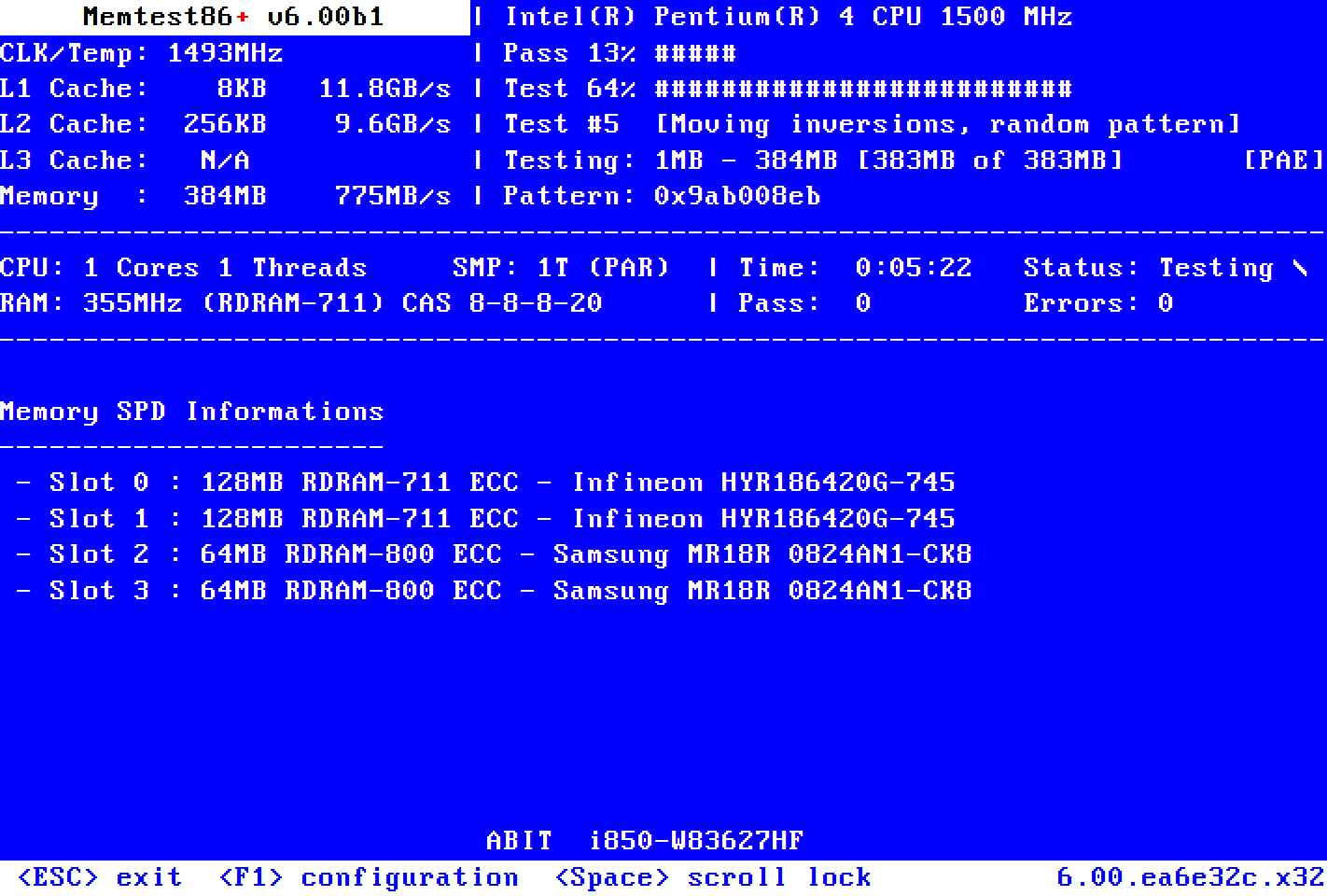So, to begin with, Ryzen does not like Vengeance memory. Not on ANY generation for the most part.
Additionally, most Ryzen systems won't support four DIMM operations without problems or without a reduction in frequency.
Fascinating what you learn on Tom's.
I've just booted up my old Ryzen 3800X and checked the RAM.
Four sticks of Corsair Vengeance LPX CMK32GX4M2D3000C16, i.e. 4x16GB = 64GB, made up of two dissimilar 32GB kits, purchased a year apart. Exactly what you're not supposed to do.
BIOS is set to XMP Profile 1 DDR4-3000:
Memory Timings: 16-16-16-38 (CL-RCD-RP-RAS)
Command Rate (CR) 1T
Memory Bus 1500MHz (3000MT/s)
Thaiphoon Burner shows all four DIMMs are running Micron Technology 8GB B-die. so I got lucky with my two different DDR4-3000 kits.
Although these are only DDR4-3000 DIMMs, I briefly set the motherboard to XMP 3200 and ran some stability tests with no errors, but I set the system back to 3000MT/s for stability when running long video renders. The 3800X system has remained stable with 4 DIMMs, since I built it in 2019.
I bought two more sticks of Corsair RGB 16GB 3200mhz RAM on top of the 16 gb I already had (same spec as the ones I bought) but when I put them in their slots the computer wouldn’t boot, I found that the computer only works with 2 or 3 ram sticks installed
When filling all four slots in a motherboard, disable XMP and any CPU/PBO overclocks as a starting point. Expecting (hoping) four sticks will POST at the same XMP settings as two sticks, often ends in disappointment. Four sticks place additional strain on the CPUs Integrated Memory Controllers, requiring lower frequencies.
If your two pairs have significantly different SPD settings, the BIOS might pick settings stored in the fastest pair of DIMMs, which are too fast for the second pair.
To start off, install a matched pair of DIMMs in slots A1, B1. Connect the second matched pair in slots A2, B2. Do
not mix DIMMs from different pairs in A1, B1 or A2, B2.
If the combination above doesn't work, try swapping the second pair of DIMMs over to slots A1, B1 and the first pair to slots A2, B2.
If the system still won't POST with 4 DIMMs, fit just one DIMM and run MemTest86.
Repeat for each DIMM on its own. Any errors, dump the bad DIMM.
If you have any doubts about the DIMM sockets, check a single known good DIMM in each slot in turn using MemTest86
So my question is, would it be a safe bet to assume that the Aerocool PSU is causing me problems?
I doubt your PSU is causing memory boot problems.
This list does not inspire me with any great confidence about Aerocool PSUs.
https://www.techpowerup.com/reviewdb/PSUs/Aerocool/
If your PSU is more than 5 years old, change it for a Gold rated PSU from a reputable manufacturer.




